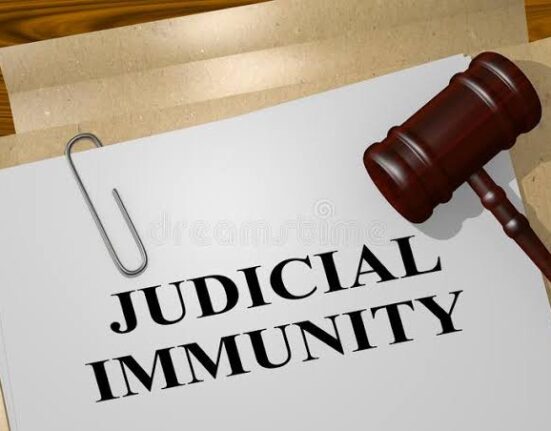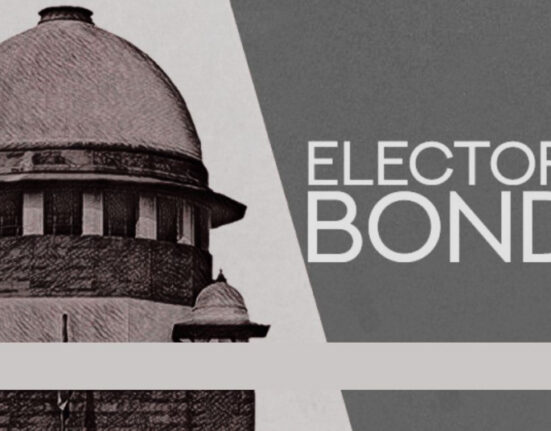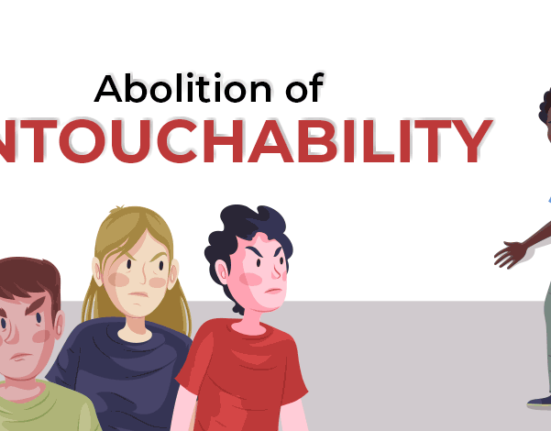This article, “Right to life and personal liberty” is written by Urvashi Lanjhewar a 4th year Law student at Sage University, Indore.
Introduction
In a country, the Constitution is an instrument of governing. India’s Constitution is the longest in the world. It’s got 448 articles arranged in 25 parts and 12 schedules. Our country is so big with so many cultures, castes and religions, with so many states that people who drafted the Constitution had to focus on the details, and in doing so it worked very well for the smooth functioning of the country. It took more than 2 years and 11 months to complete world’s largest constitute.
Article 21 of the Indian Constitution- Positioned as a crucial element in our legal framework, Article 21 epitomizes the principles of justice, liberty, and the inherent dignity of each individual. Beyond its seemingly straightforward statement on the right to life and personal liberty, this article has undergone a transformative journey since its introduction. This exploration aims to unravel the fine impact of Article 21 on the lives of citizens, its pivotal role in shaping legal dynamics, and its enduring relevance in the face of contemporary challenges. Far from being a mere legal provision, Article 21 stands as a dynamic expression of the ongoing pursuit of justice and preservation of individual freedoms within the diverse and dynamic landscape of Indian society.
Definition
Article 21 of the Indian Constitution states “No person shall be deprived of his life or personal liberty except according to the procedure established by law”. This fundamental right is available to everyone, including citizens and foreigners.
Article 21 not only embraces the physical existence of life but also the quality of life. The Indian judiciary has interpreted this provision broadly to include aspects of human life that go beyond physical existence. Article 21 has three important elements: life, liberty, and dignity.
The Supreme Court has held that “deprived” does not mean that the Court is powerless to interfere when there is an imminent threat to the freedom of life or personal liberty. These rights include the right to privacy, the right to education, right to sleep.
Meaning
According to the procedure established by the law Life and liberty are rights available to noncitizens as well as citizens, those who have no knowledge of their citizenship or whose nationality is unknown the right to life is most fundamental and difficult to define.
The extent and content of the components of that right will depend on how well the country’s economy develops, but in any view, it must also cover both basic needs and a right to take care of their functions and activities as being an essential expression of humanity itself. It extends to the protection of wildlife, fauna-flora, forests, lakes, ancient monuments, unpolluted air, noise protection, and air and water pollution.
Right to life includes all that gives meaning to individual life and to express without harming other life. Concerning a corresponding provision in the 5th and 14th Amendments of the US Constitution, which says that no person shall be deprived of his ” life, Liberty, or property, without the due process
the magnitude and content of the components of this right would depend upon the extent of the economic development of the country but it must in any view of the matter include the right to the necessities and also the right to carry on such functions and activities as constitute the bare minimum expression of the human-self.
Non-revision of salary scales, which are not so low as to deny survival, also does not violate Article 21. The employment of innocent tribals as special police officers placing their as well as others’ lives at risk violates the right to life. The right of agriculture to cultivation is part of their fundamental right to livelihood but the right to carry on trades or business is not covered By Article 21.
History
The right to life is the most fundamental and difficult concept to define. Reference to provisions in the 5th and 14th Amendments of the US Constitution which said no person should be deprived of life, liberty, or property, without the due process of Law. Field J spoke of the expanded definition of a right to life. it was approved and further expanded by our supreme court in Francis Coralie Mullin v. UT of Delhi ( Francis Coralie )
The historical genesis of Article 21 within the Indian Constitution can be traced back to the deliberations of the Constituent Assembly, which convened from 1946 to 1949 to formulate the foundational document. During these deliberations, extensive discussions unfolded regarding fundamental rights, with a particular focus on the right to life and personal liberty.
International declarations on human rights, such as the Universal Declaration of Human Rights (UDHR) of 1948, exerted a considerable influence on the framers of the Indian Constitution. The articulation of a fundamental right on life and personal liberty was directly informed by these global principles.
The pivotal role played by Dr. B.R. Ambedkar, Chairman of the Drafting Committee, cannot be overstated. His advocacy during the debates underscored the necessity of incorporating robust safeguards for individual rights. Article 21 was conceived as a mechanism to curb arbitrary state actions and ensure the protection of citizens’ fundamental rights.
The historical context of Article 21 is closely intertwined with the concept of habeas corpus—a legal remedy safeguarding personal liberty by preventing unjust detention. The framers sought to provide individuals with a safeguard against arbitrary arrests and unlawful detentions.40
The interpretative trajectory of Article 21 has been shaped significantly by judicial decisions. Notable cases such as A.K. Gopalan v. State of Madras (1950), Maneka Gandhi v. Union of India (1978), and M.C. Mehta v. Union of India (1987) have contributed to a progressive jurisprudence emphasizing the protection of individual rights.
Furthermore, the incorporation of the right to privacy within Article 21 gained prominence in recent years. The Supreme Court’s ruling in the case of K.S. Puttaswamy v. Union of India (2017) explicitly acknowledged the right to privacy as an integral component of Article 21.4
In essence, the historical journey of Article 21 underscores the commitment of the framers to safeguarding fundamental rights, ensuring justice, and preventing arbitrary state actions in matters of life and personal liberty. It stands as a foundational pillar within the constitutional framework, embodying principles of justice, dignity, and human rights.
Effect During Emergency
Certain fundamental rights, including those guaranteed by Article 21, may be temporarily suspended or restricted in the event of a national emergency in India, particularly if a declaration is made under Article 352 of the Constitution or a state of emergency is declared under Article 356 of the Constitution. It is important to note that these provisions are extraordinary and aim at addressing situations which pose a threat to national or state security. Here are the implications of Article 21 during a state of emergency:
1. Temporary Suspension of Rights:
In the event of a national emergency, the President shall have the power under Article 359 to suspend the enforcement of the right to move to any court for the enforcement of fundamental rights, including Article 21. This means that during the emergency period, individuals may not be able to apply for legal protection of their rights.
2. Conditional Application of Right to Life and Personal Liberty:
Although Article 21 is not automatically suspended in case of an emergency, the State may impose appropriate restrictions on this right. Individuals may experience limitations on their freedom of movement and personal liberty, provided these restrictions are by the law and proportionate to the exigencies of the situation.
3. Limited Judicial Review:
It is not the exclusive power to suspend enforcement of basic rights, including Article 21. Such a declaration shall be submitted to each House of Parliament and Parliament shall retain the power to revoke or amend the suspension. However, in an emergency, the scope of judicial review may be restricted as individuals are likely to face restrictions when seeking redress for fundamental rights.
4. Safeguards Against Arbitrary Detention:
Despite these restrictions, even in the event of an emergency, safeguards against arbitrary detention exist. The Constitution requires that the grounds for such an action be made known to any person who is arrested or held in a state of emergency. The detained person has the right, before a panel of experts, to contest his detention.
5. Preservation of Core Protections:
Certain fundamental aspects of Article 21 may still apply during an emergency. For instance, the right to life and personal liberty cannot be entirely suspended, and any restrictions imposed must align with constitutional principles.
The suspension of fundamental rights during an emergency must be recognized as a provisional measure. When the emergency situation eases, the Constitution envisages a return to normal life. The delicate balance between the need for extraordinary measures in times of crisis and the protection of individual rights is therefore reflected in the impact of Article 21.
Importance
Article 21 is like the superhero of the Indian Constitution. It guarantees the right to life and personal liberty, making it a big deal for everyone. Here’s why it’s so important:
1. Respecting Every Person:
Article 21 says that every person is valuable and has the right to live with dignity. It’s not just about being alive; it’s about living a life with respect.
2. No Unfair Treatment:
Stops the government from treating people unfairly or taking away their life or freedom without a good reason. It insists that if the government has to do something, it has to follow the rules.
3. Your Personal Space Matters:
You have the right to keep your personal life private. This is especially important today with all the technology around us – it’s a way to make sure the government doesn’t snoop into your stuff without a good reason.
4. Doing Things the Right Way:
When Article 21 says “procedure established by law,” it means that any action taken by the government must follow a fair and reasonable process. This is to make sure they don’t just do whatever they want without thinking it through.
5. Stopping Torture and Bad Treatment:
It’s not okay to torture or treat people badly, and Article 21 makes sure the government can’t get away with it. This aligns with what the whole world thinks about treating people fairly.
6. Judges Have Your Back:
Courts in India have been pretty cool about interpreting Article 21 in a way that protects people’s rights. They’ve been making sure that this article does more than just protect life – it also makes life better for everyone.
7. Fair Living for Everyone:
Article 21 isn’t just about you – it’s also about making sure everyone gets to live a good life with dignity. It’s like the Constitution’s way of making sure things are fair for everyone.
8. Stopping the Government from Going Crazy:
If the government does something crazy or tries to take away your rights, Article 21 lets you go to court and stop them. It’s like a safety net to make sure the government doesn’t do things that are just not right.
Conclusion
In wrapping up, Article 21 in the Indian Constitution emerges as a guiding light, illuminating the way towards justice, dignity, and the safeguarding of personal rights. Embedded within its seemingly straightforward language lies a profound dedication to the intrinsic value and freedom of each citizen. Over time, Article 21 has transformed into a dynamic force, expanding in significance through court interpretations and pivotal legal cases.
It isn’t just a legal provision; it’s a pledge for a life lived with respect, a shield against capricious government actions, and a commitment to fairness and impartiality. The journey of Article 21, from a guarantee against physical constraints to a bulwark against privacy violations and a call for proper legal procedures, mirrors the changing needs of society.
In navigating the intricacies of a modern world, Article 21 remains a constant reminder that the right to life and personal liberty is not merely a privilege granted by the government but an essential aspect of our shared humanity. Its impact during emergencies, the broadening of privacy protections, and the emphasis on fair procedures highlight its ability to adapt to contemporary challenges.
Fundamentally, Article 21 extends beyond the legal sphere; its resonance can be felt in the day-to-day experiences of individuals, ensuring that the core principles of justice and humanity endure. It stands as a tribute to the foresight of the framers of the Constitution who recognized that a nation’s strength lies not just in its laws but in its commitment to securing the well-being and freedom of its people. As we grapple with the ever-changing dynamics of society, Article 21 remains a cornerstone, a reminder that in our pursuit of progress, justice, and individual rights, we must always uphold the fundamental principles it embodies.
Reference
https://byjus.com/free-ias-prep/right-to-life-article-21/
https://www.centurylawfirm.in/blog/article-21-of-the-indian-constitution/
https://heinonline.org/hol-cgi-bin/get_pdf.cgi?handle=hein.journals/ijlmhs18§ion=41
https://environment-rights.org/rights/right-to-liberty-and-security-of-person/







Leave feedback about this